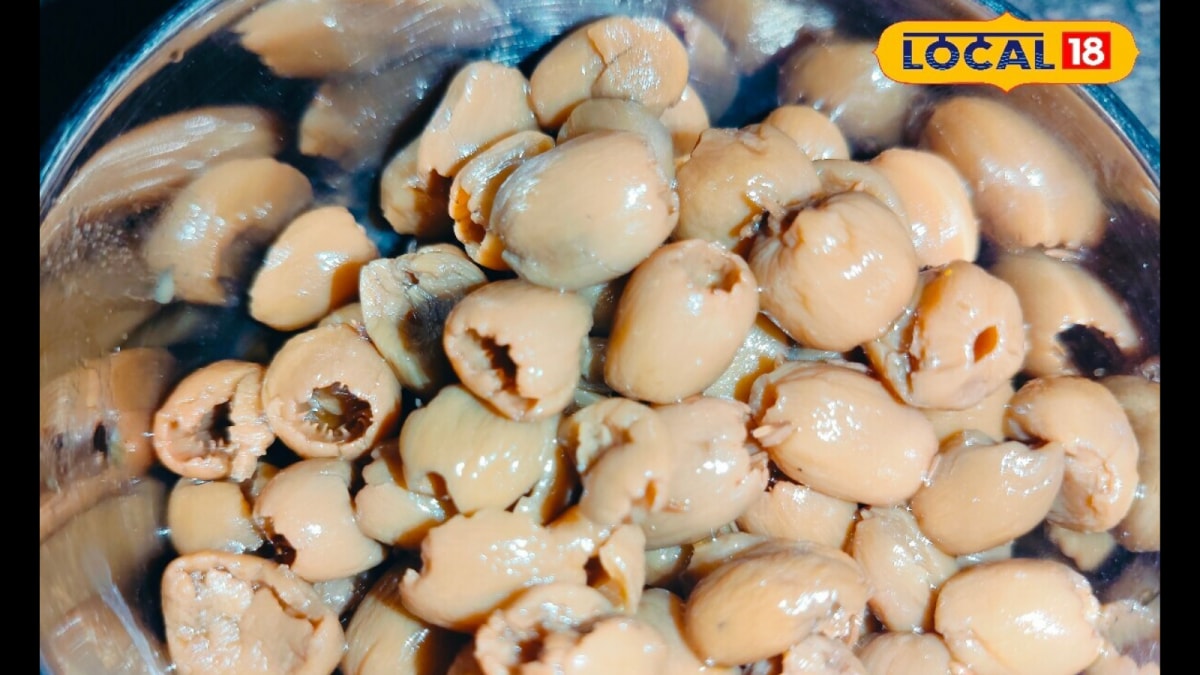Last Updated:
Erin Patterson, now sentenced to life with parole after 33 years, served a deadly mushroom lunch to her in-laws, spun lies to cover her tracks, and was finally exposed in court

Erin Patterson, the Australian woman who killed three in July 2023, has been sentenced to life imprisonment. (Credits: AFP)
What began as a seemingly ordinary meal in rural Victoria spiralled into one of the most sensational criminal cases in modern Australia. Erin Patterson, 50, has now been sentenced to life in prison for murdering three relatives and attempting to murder a fourth by serving them a dish laced with deadly mushrooms in July 2023.
The case, dubbed the “Leongatha mushroom murders”, gripped the nation and drew global attention. On Monday, Supreme Court Justice Christopher Beale told Patterson she had inflicted “trauma” and shown “no remorse”. He ruled she must serve at least 33 years before she can seek parole, meaning she would be 83 at the earliest opportunity.
Recommended Stories
Who Is Erin Patterson, The Woman At The Centre Of Australia’s Mushroom Murders?
Patterson grew up in Melbourne’s Glen Waverley suburb. She studied science at the University of Melbourne before switching to accounting, and later ran a second-hand bookshop. In 2007, she married Simon Patterson, an engineer. The couple moved across Western Australia before returning to Victoria to live near his parents, Don and Gail Patterson.
Though their marriage collapsed in 2015, Erin remained in touch with her in-laws and often saw Simon’s aunt and uncle, Heather and Ian Wilkinson, at church in Korumburra. By 2023, she was raising two children in the nearby town of Leongatha, where she would host the fatal meal.
How A Beef Wellington Lunch In Leongatha Turned Deadly
On 29 July 2023, Erin invited Don and Gail, Heather and Ian to lunch at her home. Her estranged husband, Simon, was also invited but declined.
Sky News reported that Simon told a pre-trial hearing he had refused “out of fear”. He alleged Erin had tried to poison him on three separate occasions during family camping trips, after eating meals she cooked, such as penne bolognese, chicken korma, and a vegetable curry wrap. Although tests never confirmed poisoning, Simon said the experiences left him so shaken he stopped eating her food altogether.
At lunch, Erin served beef Wellington with mashed potatoes and green beans. Reverend Ian Wilkinson testified that Heather and Gail offered to help serve, but Erin refused. Notably, Erin ate from a smaller, different-coloured plate, something Heather pointed out later.
The guests saw nothing amiss. Ian recalled his wife saying the lunch was “lovely”, and Don even ate half of Heather’s portion. Within hours, however, all four fell violently ill. Gail and Heather died on 4 August, and Don the next day. Ian survived after seven weeks in hospital. Erin later claimed she too was unwell but said her sickness was linked to an eating disorder, not poisoning, according to Sky News.
Why Patterson Lied About Cancer And How Family Disputes Fed Tensions
The invitation had itself raised eyebrows. Reverend Wilkinson told ABC that he and Heather had wondered why Erin had suddenly asked them over. At the table, she offered an explanation: she said she had cancer and wanted advice on how to tell her children.
Prosecutors said this was a calculated lie, designed both to justify the gathering and explain why her children were sent to the cinema during the meal. In court, Erin admitted the story was false. “I didn’t want their care of me to stop, so I kept it going,” she said. “I did lie to them.”
Financial disputes also weighed heavily. Simon testified that after he declared them financially separated on a tax return, he became liable for child support. That meant he no longer directly paid their children’s private school fees, something he believed angered Erin.
The Food Dehydrator, Wiped Phones And Other Attempts To Conceal Evidence
Investigators pieced together a series of suspicious actions. Erin initially told police the mushrooms were a mix of button mushrooms from a supermarket and dried mushrooms from an Asian grocery. But police later discovered a food dehydrator she had dumped at a local tip. Sky News reported that the device tested positive for death cap mushroom residue.
Erin at first denied owning such a device, then said she had thrown it out before a visit from child protection services. Two of her mobile phones had also been reset to factory settings multiple times. She said this was due to panic during the investigation, fearing she might lose custody of her children. Prosecutors described it as a clear attempt to destroy evidence.
She also told the court that she and her children ate leftovers from the meal, scraping off the mushrooms because the children disliked them. Yet a nurse later testified that when Erin admitted herself to hospital, she “didn’t look unwell” compared with Ian and Heather, who were critically sick.
What Makes Death Cap Mushrooms So Lethal?
Death cap mushrooms are among the most poisonous fungi in the world and are responsible for most fatal mushroom poisonings globally. They contain toxins which destroy the liver and kidneys. Symptoms first mimic food poisoning — nausea, vomiting and diarrhoea — before progressing to jaundice, seizures, coma and, often, death.
Just one mushroom can kill, which is why Australian authorities repeatedly warn against foraging for wild mushrooms. Patterson had been known to forage locally during Covid lockdowns, prosecutors said, drying and storing fungi with a food dehydrator.
How A Doctor Realised The Mushroom Cook Was A Killer
One of the most striking testimonies came from Dr Chris Webster, who treated Heather and Ian at Leongatha Hospital. Speaking exclusively to the BBC, Webster said he initially suspected contaminated meat and sent blood samples for analysis. But when a doctor at Dandenong Hospital, about 90 minutes away, confirmed Don and Gail were suffering from mushroom poisoning, he realised what was unfolding.
Soon after, Erin walked into his ward, claiming she too had gastro. “The penny dropped… it’s the chef,” Webster told the BBC.
Two things alarmed him: her implausible claim that the mushrooms came from supermarket chain Woolworths, and her lack of concern for her gravely ill relatives lying metres away. Minutes later, she discharged herself against medical advice.
Webster immediately called the police, giving Erin’s name and address in a recorded call later played at trial. His testimony became a cornerstone of the prosecution’s case.
Inside The 10 Week Trial That Made Global Headlines
The trial lasted ten weeks and was heard in the regional town of Morwell, about an hour from Leongatha. It was overseen by the Supreme Court of Victoria in Melbourne, which later made history by allowing sentencing remarks to be televised live for the first time. The move reflected the overwhelming public interest in the case, which millions of Australians followed through daily podcasts.
Victim impact statements revealed the depth of the tragedy. Ian Wilkinson told the court: “It’s a truly horrible thought to live with that somebody could decide to take her life. I only feel half alive without her.” Simon Patterson described the relentless coverage as traumatic.
Mint reported that the court received 28 victim statements, with seven read publicly. The case has already inspired several books and documentaries, and ABC is producing a drama series titled Toxic.
Life Sentence With Parole After 33 Years: What The Judge Said
In July 2025, a jury convicted Erin Patterson on three counts of murder and one of attempted murder. Prosecutors argued she should never be eligible for parole. Her defence asked for parole after 30 years.
On 8 September, Justice Beale imposed a life sentence with a non-parole period of 33 years. “You cut short three lives and caused lasting damage to Ian Wilkinson’s health,” he said. “You inflicted untold suffering on your own children, whom you robbed of their beloved grandparents.”
Her legal team now has 28 days to appeal the conviction and sentence.
About the Author

Karishma Jain, Chief Sub Editor at News18.com, writes and edits opinion pieces on a variety of subjects, including Indian politics and policy, culture and the arts, technology and social change. Follow her @kar…Read More
Karishma Jain, Chief Sub Editor at News18.com, writes and edits opinion pieces on a variety of subjects, including Indian politics and policy, culture and the arts, technology and social change. Follow her @kar… Read More
September 08, 2025, 09:13 IST
Loading comments…
Read More




